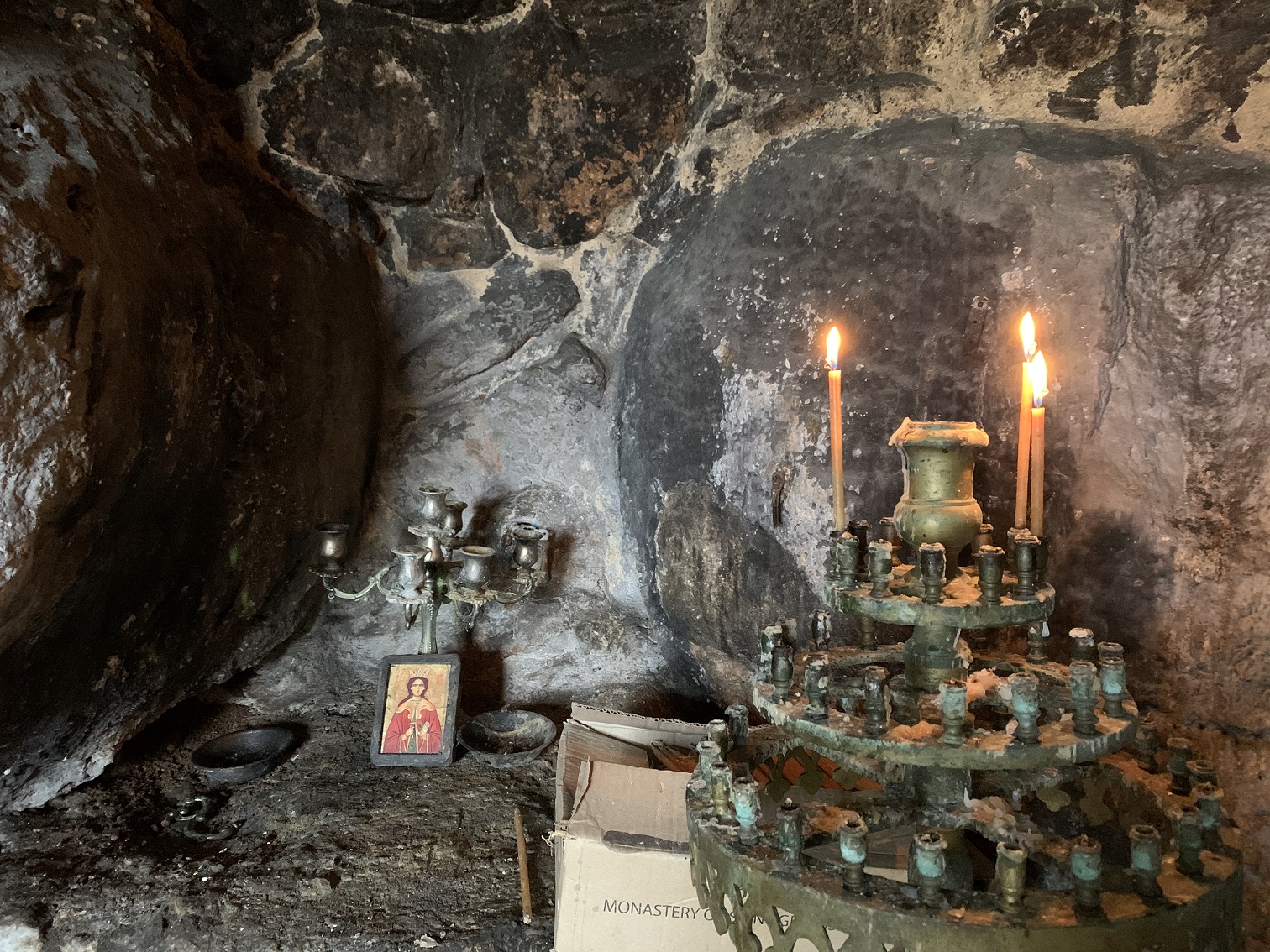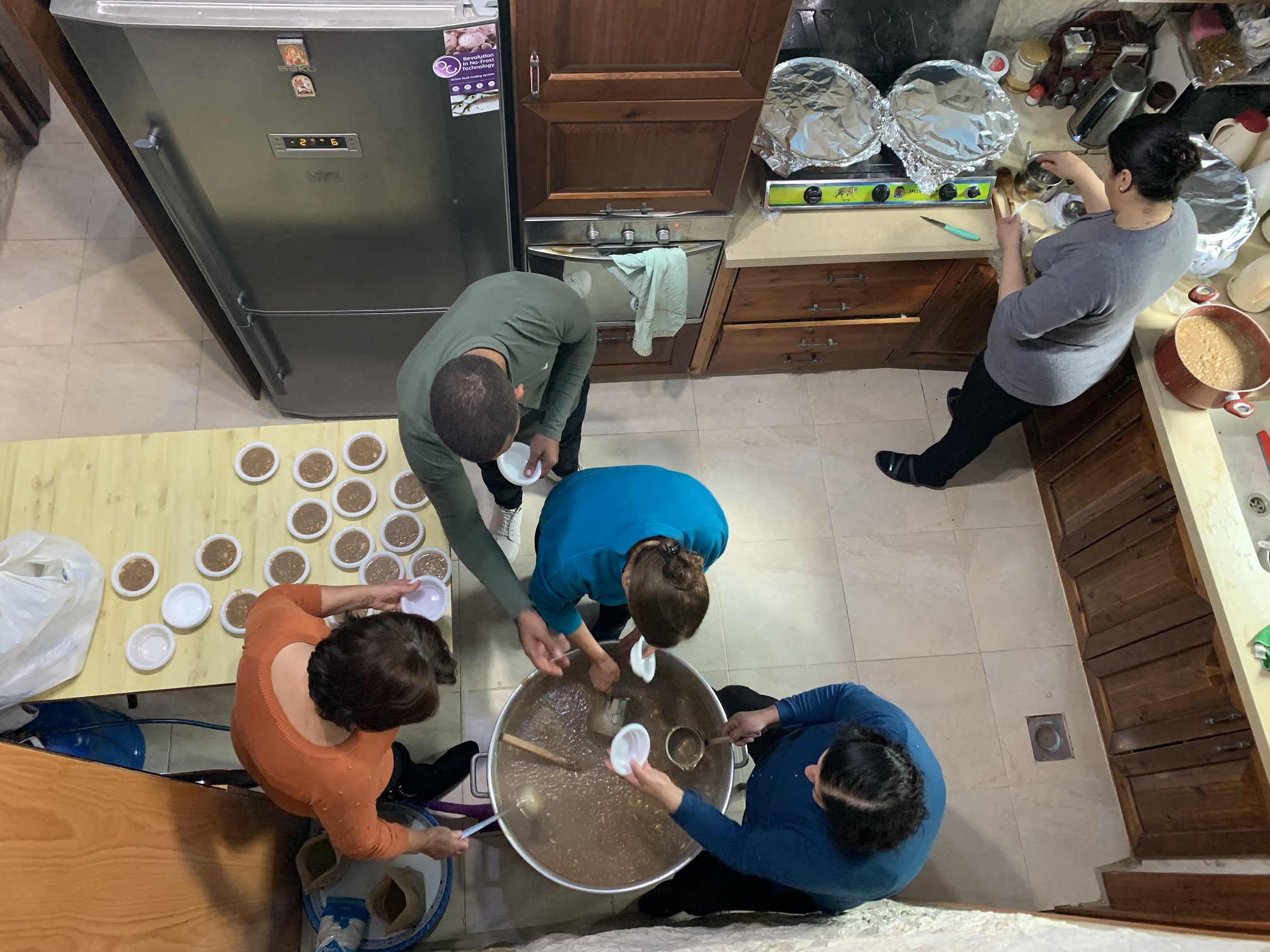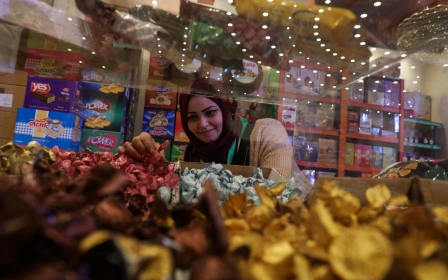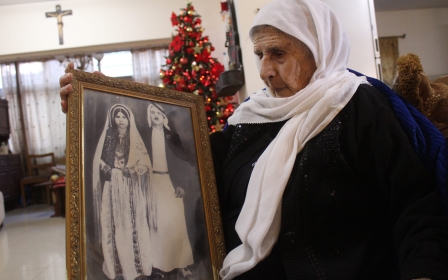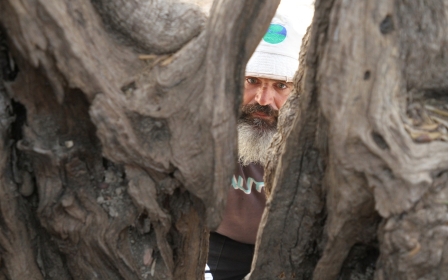Memories of Saint Barbara still define the village of Aboud in Palestine
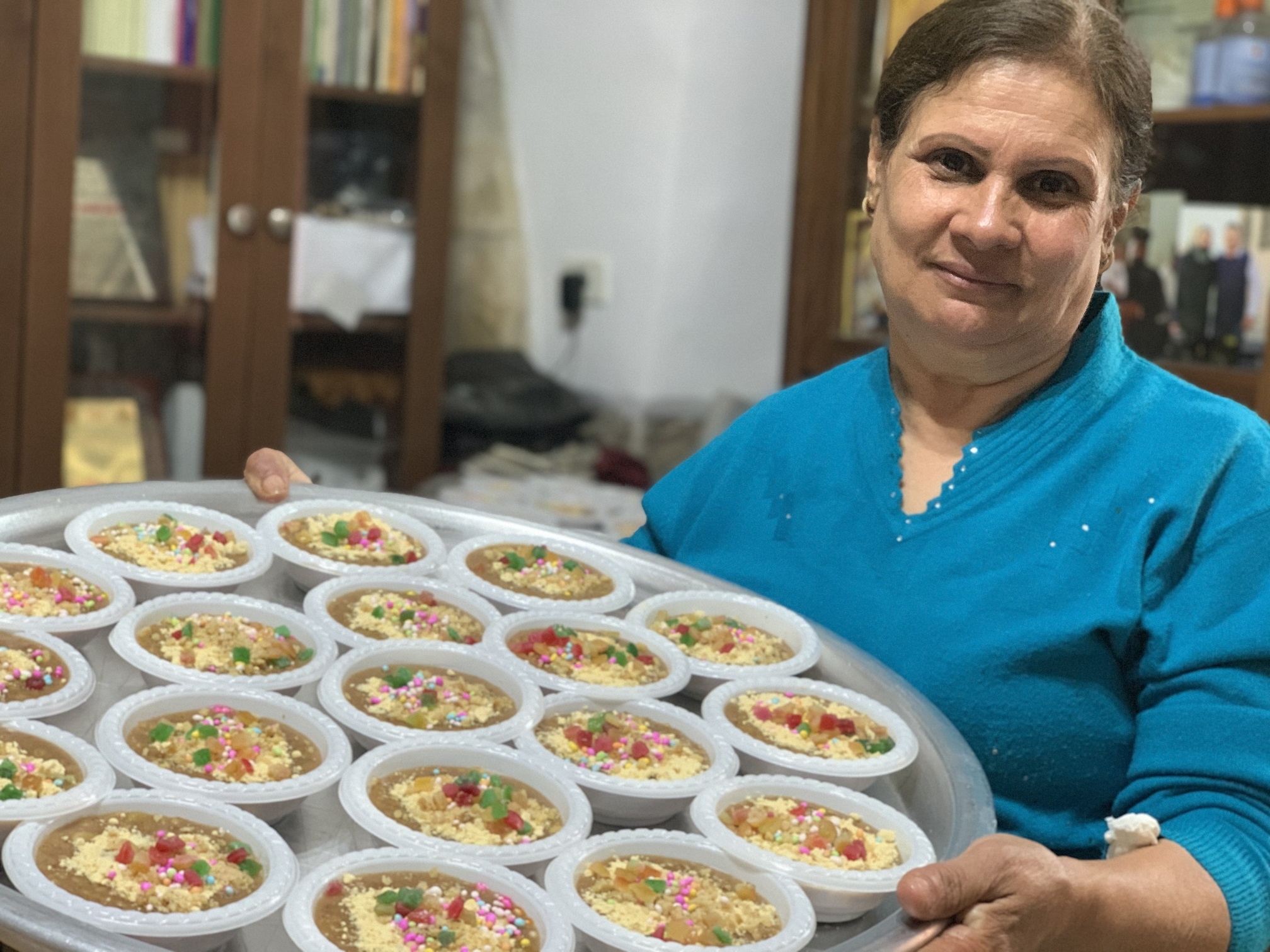
Inside the small kitchen of a Greek Orthodox Church in the Palestinian village of Aboud, a group of hardworking women gathered in the early hours around a vast pot of wheat.
One stirred the thick mixture with a large wooden spoon, a second added sugar, a third brought in nuts. Others hurried about in preparation for Eid al-Burbara (Saint Barbara’s Day), a festival that fell on 17 December in Palestine and across the Levant.
The ancient religious holiday is one of the primary pre-Christmas traditions in the region and the village of Aboud has been the focal point of celebrations for hundreds of years.
Located on the northern outskirts of Ramallah and home to about 2,200 residents, the village observes the event with much spirit and enthusiasm.
The most widely held belief among residents about the origins of the day is that Aboud gave shelter and a final resting place to Saint Barbara, a Christian convert fleeing persecution some 1,700 years ago.
New MEE newsletter: Jerusalem Dispatch
Sign up to get the latest insights and analysis on Israel-Palestine, alongside Turkey Unpacked and other MEE newsletters
The story of Saint Barbara
Local priest Father Talaat Awad said that the saint is considered a martyr for holding onto her faith until she was killed by her father.
“Saint Barbara is a source of inspiration for us to remain firm in our faith and principles,” he told Middle East Eye, describing the saint’s resilience to persecution up until her death.
“The story that has been passed on through generations says that in the third century (235-237 AD) she came to Aboud and hid here,” he said, explaining that because of her connection to the village, she is considered its patron saint.
Villagers revere a cave where Saint Barbara reportedly hid and that also held her remains for hundreds of years before their removal. A shrine still stands at the site.
While all apostolic churches celebrate Eid al-Burbara, celebrations in the village of Aboud are unique according to Father Talaat, who described residents marching from the centre of the village to the shrine, where they light candles to pay homage to the saint.
Traditional Burbara wheat dish
Eid al-Burbara in Aboud begins with the village’s women flocking to the church kitchen to help prepare a traditional festive sweet wheat dish called Burbara, which is made across Palestine to mark the holiday.
According to Father Talaat, local tradition says that while Saint Barbara was fleeing persecution, she hid in a field of wheat on her way to Aboud and it was there that a divine miracle happened.
As Saint Barbara ran, the wheat around her grew instantly, covering the path she had taken and with it the traces of her footsteps in the field.
"The wheat hid Saint Barbara... and therefore it became a symbol of her commemoration,” he said.
Nahil Khoury, 56, told MEE that when she was 15, she would gather with other girls in the village at the church kitchen on the morning of Eid al-Burbara to help prepare the dish. It is a tradition she has kept up every year since.
“We had limited financial means, so at the time we would prepare the dish in a simple way, with the ingredients that were available at home,” Nihal explained, speaking about her memories of the occasion as a teenager.
“Our mothers would grind the wheat by hand, then boil it, then add sugar, fennel and anise, and serve it on a plate with bread.”
“Today, we buy the wheat ready and peeled, so we only have to cook it. After it’s ready, we add sugar, anise, fennel, cinnamon, nutmeg, nuts, and raisins,” said Nihal, noting how the different stages of preparing the dish have changed over time.
Lilia Saleh, 62, sat near the large pot and continued to stir with force. "I used to come to the church kitchen on every occasion, to help prepare food and coffee to serve to the guests," she told MEE.
After the Burbara was ready, the women surrounded the large pot and began pouring it into dozens of small plastic bowls for distribution after prayer. Once the plates cooled, almonds, walnuts, and fresh and dried fruits were added as decoration on top.
Sprinkling nuts on the plates, Nahil said: “Every year we come here and our only goal is to extend a hand to others, in fulfillment of Saint Barbara whom we consider a martyr and a role model for all of us.”
"We Palestinians love to help; it is part of our daily life, and we live by it more intensely on special occasions, like this day in Aboud," she added.
Saleh concurred.
“Eid al-Burbara is special and holy to us. You are here to help prepare the Burbara dish to feed everyone from it, in honour of the saint,” she said.
This year, the women prepared a smaller amount than usual, expecting that there will be less people coming from outside the village this year due to local COVID-19 pandemic restrictions in the occupied West Bank.
"We pray to God that He accepts our efforts, and that He wipes out the Corona pandemic from all of humanity. Let us go back to celebrating Eid al-Burbara as we did in previous years,” said Nahil, before young men from the village arrived to help distribute the dishes.
Israeli restrictions
At the main and only entrance to the village of Aboud, a ‘flying’ Israeli military checkpoint stopped and searched each individual vehicle entering the village.
It is a practice that the Israeli occupation force imposes on Aboud and other Palestinian villages on an almost daily basis, and the frequency increases on religious occasions such as Eid al-Burbara.
At times, the Israeli army shuts the metal gate it has installed at the entrance to the village for long periods of time as a form of collective punishment, forbidding movement to and from the area. Residents believe this behaviour is part of the army’s strategy to deter people from visiting.
Hanna Khoury, head of the Aboud local village council said Israel had confiscated 6,000 dunams (1,482 acres) of Aboud’s land to help expand the nearby illegal Israeli settlements of Beit Aryeh and Ofarim, as well as a road linking them.
"The village of Aboud is surrounded by settlements from all directions, and the only entrance to the village is where the Israeli army places a military post and an iron gate that is closed at certain times,” Khoury said.
Despite its size, Aboud contains a number of historic and archaeological sites, including eight Roman churches, monasteries, ancient tombs, and old homes.
Some, such as the Dormition Church of the Virgin Mary, date back around 1,700 years.
"These religious and archaeological sites give character and importance to the village of Aboud, which suffers from a siege by Israel, as well as neglect and marginalisation by the Palestinian Ministry of Tourism and Antiquities,” Khoury said.
Middle East Eye delivers independent and unrivalled coverage and analysis of the Middle East, North Africa and beyond. To learn more about republishing this content and the associated fees, please fill out this form. More about MEE can be found here.


